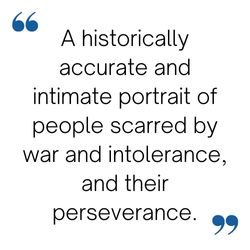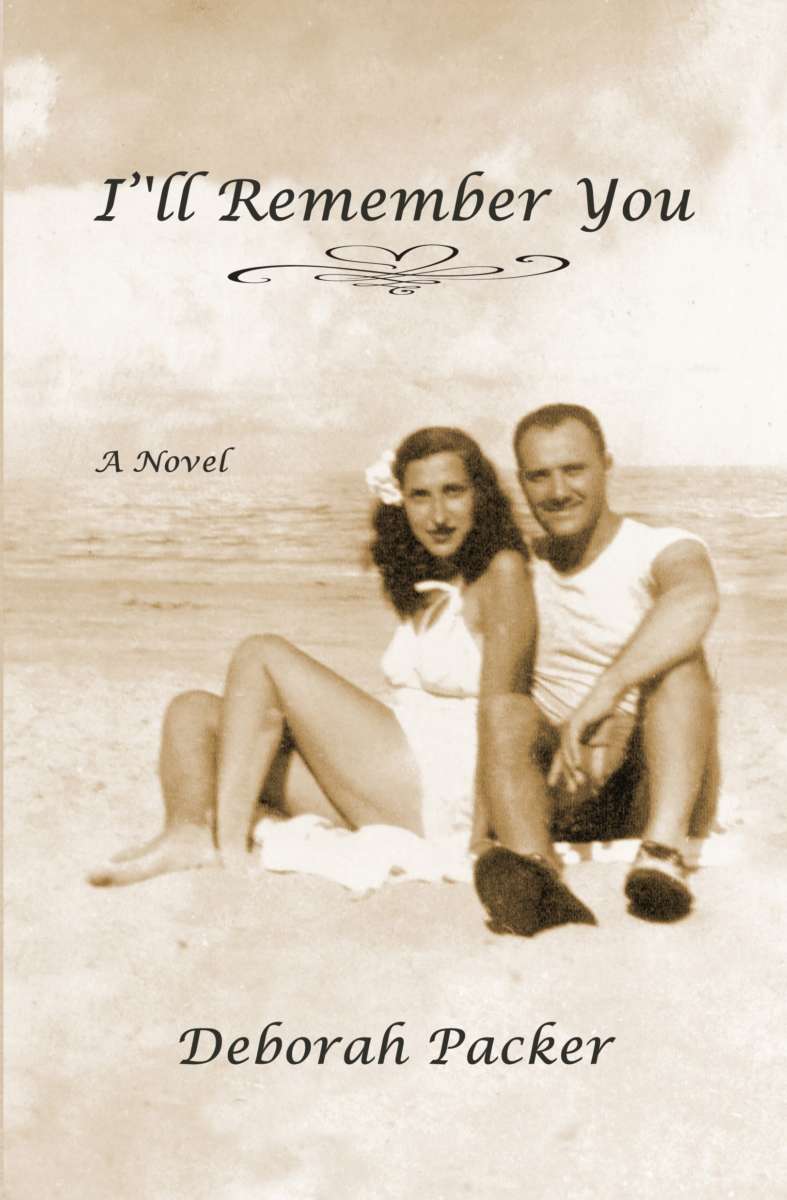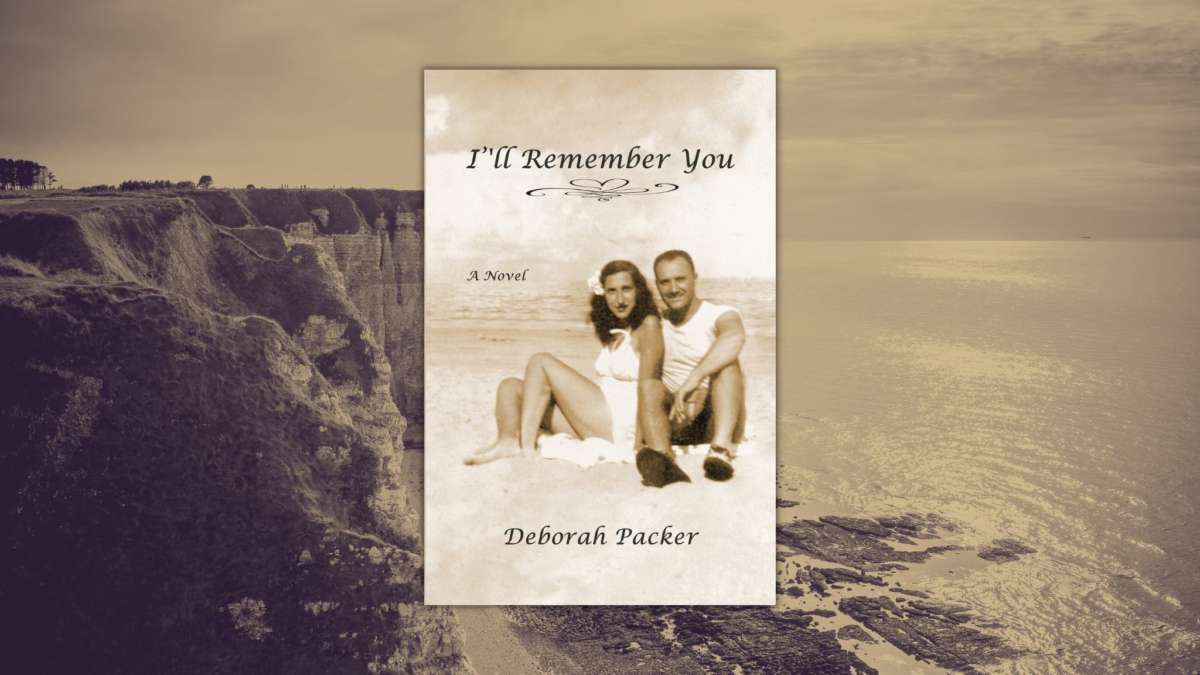I’ll Remember You by Deborah Packer
In 1943, a trip to Miami Beach to escape Michigan’s icy-cold winter had seemed like such a good idea. But when two young women arrive after a horrible three-day train ride, they find the hotel rooms taken up by Army Air Corps soldiers in training there. Even worse, one hotel sign reads, “No Jews or dogs allowed.” After searching all day, Bobbie and her friend Eunice finally find a small hotel, home to refugee boarders.
Eunice is thrilled by the presence of so many men in uniform but Bobbie can’t forget her father’s warning: Don’t get involved with a soldier. Of course, she does. And so does Eunice, but with different consequences.
I’ll Remember You by Deborah Packer is a love story and a war story, filled with details of American life in the early 1940s, a turbulent time of rationing and sacrifice, broken promises, whirlwind courtships and the uncertainty of war as men are swept up in the war effort, leaving the women they love behind.
A LOVE STORY AND A WAR STORY
 Originally written as a screenplay, Packer’s style is cinematic. She creates vivid scenes, often spiced with humor. Conversations are snappy, and the characters’ personalities shine through. Idealistic and proud, Bobbie Feinman has spunk.
Originally written as a screenplay, Packer’s style is cinematic. She creates vivid scenes, often spiced with humor. Conversations are snappy, and the characters’ personalities shine through. Idealistic and proud, Bobbie Feinman has spunk.
In the hotel lobby, Bobbie’s insistence on a room catches the eye of a young soldier from Brooklyn, Murray Pickarowitz. (She notices him, too.) The next day on the beach, he introduces himself.
Packer does an excellent job describing their inner thoughts and feelings. Bobbie is surprised by Murray’s shyness and reticence; she’d expected him to be much more sophisticated. He surprises himself by telling her about his childhood in Poland during the German bombings in the First World War. Their conversation ends without any plans to meet again.
Afterward, both are conflicted. Bobbie wonders what she might have said to discourage him, but is determined to resist the curveballs the “weak pathetic heart of hers was throwing.” Murray’s heartfelt attraction to her disturbs him. “It was a futile and unrealistic emotion.” Based on his own horrific childhood memories of war, he knows he won’t be coming back.
The first half of the book is a will-she, won’t-she cliffhanger. Although she doesn’t really know him, Bobbie says yes to Murray’s surprising marriage proposal, and back home in Michigan, remains doubtful and concerned even up to the hastily planned wedding day.
On their three-day honeymoon, Bobbie is waiting for Murray to share his feelings. When she tries to talk to him about the war, “he would simply smile and change the subject. Nothing was going to deter him from having a good time … Nothing wrong with that. Except, she was beginning to wonder if that was all he cared about.”
FACES HISTORY’S DARK PARTS
The couple’s shaky romance is periodically dampened by constant war news: “President Roosevelt reported today that operations to drive our enemies into the sea of Tunisia will not be long delayed … we must remain calm at the home front.” But the home front and the armed forces are marred by racism and anti-Semitism.
Blacks were initially relegated to mess hall duty or trained for non-combatant positions until, at the urging of Eleanor Roosevelt, Black combat units were eventually established. A cross is burned on a Black family’s lawn in Bobbie’s hometown. A rock is thrown through a window of her own family’s house.
After emigrating to America in 1921, settling in Brooklyn, Murray often found himself in fights with other kids who called him names and made fun of his accent and clothes. In Miami Beach, he is placed under house arrest for tearing down the “No Jews allowed” signs at hotels and later, at Fort Bragg, North Carolina, a sergeant taunts him for being Jewish; Murray responds with his fists, putting a three-day leave with Bobbie in jeopardy. And, in a diner in Raleigh, German prisoners of war are eating at a counter with their guards as two Black soldiers are denied service. Murray has an altercation with the restaurant owner and a fight ensues. Bobbie begins to see past the silences and her own doubts.
AN INTIMATE PORTRAIT OF PERSEVERANCE
Based on a true family story, I’ll Remember You delivers a historically accurate and intimate portrait of people scarred by war and intolerance, and their perseverance during a critical time in American history. Packer’s experience at the Simon Wiesenthal Center in Los Angeles teaching the Holocaust allowed her to dig deeply into the era, both in this country and Europe, and the impact it had on her own family.
And that photo at the end of the book: Could the smiling couple, he in uniform and she in period dress, be the author’s parents? The book is dedicated to Packer’s “dearest parents, Helen and Murray, whose love, support, humanity and courage in the face of adversity gave me the strength and inspiration to write this story.”
About Deborah Packer:
Deborah Packer is an actress/writer with a Master’s degree in Speech and Drama from the University of Michigan and has worked on stage, TV and film in Toronto and Los Angeles. She has also written and performed sketch comedy and completed two screenplays. I’ll Remember You is her first novel.





